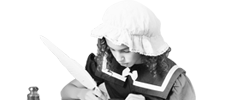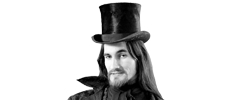Murder Trials
The McKeans
On Monday August 21st 1826 two brothers, Alexander and Michael McKean went to the gallows in Lancaster for the murder of Elizabeth Bate. The events that brought the two men to trial and execution took place at the Jolly Carter public house on the evening of May 22nd 1826. The pub was at Winton, a small village on the road to Manchester, just outside Patricroft Bridge. The landlord of the Jolly Carter was Mr Joseph Blears, who ran the establishment with his wife Martha. They employed two servants, Elizabeth Bate who was forty-one, and a boy of thirteen named William Higgins. The business was not prosperous, and Blears regretted taking having taken it on.
Alexander, who was 30, was already known at the Jolly Carter. He was a draper by trade and lived with his mother in Manchester. He ran the business with his brother Michael, who was five years his junior. It seems that things had begun to go wrong for the McKeans prior to the murder and they were described at their trial as being ‘much reduced’ in circumstances at the time it took place. Alexander was a hawker for the business and he had first called on the Bleares a year before the events of May 1826. He became a regular visitor, selling tea, silks and cotton to the proprietor. He was known to all at the Jolly Carter simply as Alec.
On the evening of Monday May 22nd 1826, between five and six o’clock, a stranger entered the Jolly Carter and asked for a glass of beer. Some time later Alexander McKean arrived and he too ordered beer as well as bread and cheese. The first man, who was in fact Michael McKean, affected not to know his brother and they did not speak to each other until Mrs Bleares had left the room. Unknown to them, however, she observed them from the kitchen whispering together, which she thought strange. Alexander was very anxious to speak to the landlord. He told Mrs Bleares that he wished to treat Joseph to a glass of whiskey but she explained that her husband had gone to Manchester on business and was not expected back until later. Alexander asked her whether her husband slept soundly ‘when he got liquor’, although why he should want to know this puzzled her.
Joseph Bleares returned home at eight o’clock and Alexander immediately called him into the bar and ordered two noggins of whiskey, which they drank together. Over the course of the next hour Bleares appears to have been plied with drink, Alexander at one point pouring his own whiskey into Bleare’s glass when his back was turned. By nine o’clock Joseph Bleares was soundly asleep on the sofa. There were two other patrons in the bar until about eleven. Mrs Bleares had spent the evening mostly in the kitchen, but when the other customers finally left the pub Michael approached her and asked for a bed for the night, saying that it was too late to return to Manchester especially as he had ‘a deal of money’ on him. Despite her protests he prevailed upon her to allow them both to spend the night. They disappeared outside the pub for about twenty minutes before returning and then asked that they be shown to their chamber. Michael asked her if her husband went to bed when he was drunk, and if not whether she stayed up with him as well. Just then the maid appeared and Mrs Bleares told her to fetch a candle and show the men where they were to sleep. The maid was the ill-fated Elizabeth ‘Betty’ Bate.
What happened next was described in chilling detail at the trial by the boy, William Higgins, who was asleep in the room upstairs. There were two beds in the room and the second was the one intended for the McKeans. William was woken by a noise and, by the light of the candle Betty had placed in the window between the two beds, he saw Alexander with his left arm around Betty, who was struggling with him. William heard her tell Alexander to ‘be quiet-have done-let me alone.” The boy assumed that Alexander wanted a kiss and thought nothing of it until he realised that Betty had a knife at her throat. He heard her scream and the next thing William saw was blood gushing from a wound in Betty’s neck before she was flung to the floor. Her cry of ‘murder’ was cut short as McKean cut her throat, but it was enough to rouse William. McKean realised that the boy had seen it all and attempted to smother him but Betty had somehow found the strength to get to her feet and she distracted McKean long enough to allow William to escape. Terrified, the boy rushed past him, vaulted over the banister and, evading the arms of Michael McKean who was waiting at the foot of the stairs, headed outside, and ran away to hide in a ditch.Downstairs, Mrs Bleares, who was sitting in the bar with her sleeping husband, heard Betty scream and immediately took a candle and went into the hall, where she was confronted by Michael McKean. Far from accompanying his brother up the stairs as she had assumed, he seemed to be waiting at the bottom, almost as if on guard. Before Mrs Blears could do anything he attacked her and tried to stab her in the neck. The blow glanced over her throat, whereupon Michael threw her to the floor and struck her again, the second time driving his knife deep into her face before rushing out of the pub.
Martha Bleares, who was described as ‘nearly fifty years of age and rather lusty,” was clearly in a terrible state. Minus her cap and bleeding heavily, the knife still embedded in her face, she ran from the house and staggered the sixty yards to the home of Mary Andrews, her niece. On hearing her voice William Higgins chased after her and together they roused the neighbourhood.
The scene inside the pub was one of carnage. Betty had managed to crawl across the landing to the club room where she died. Mr Bleares later testified that the local Friendly and Orange Societies used this room for their meetings: in fact he had the funds from both groups on the premises, with that of the Friendly Society being in the region of £30. Betty had plainly put up a fight, but died as a result of the wound to her throat. In the bedroom they found more blood but also a black leather stock which was later identified as belonging to Alexander McKean. His distinctive yellow walking stick had been left in the bar.
An inquest was held at the Jolly Carter at four o’clock the next afternoon and a verdict of Wilful Murder was returned. Alexander was named as the perpetrator of the ‘bloody deed’, and Michael was wanted for aiding and abetting him in the crime. A manhunt began, with posters bearing very accurate descriptions of both men being despatched to all corners of the county. Accompanying the proclamation was the promise of a reward of fifty guineas, raised by the inhabitants of Winton, for information leading to the arrest and conviction of the perpetrators of what was fast becoming a notorious crime.But what of the brothers? Simon Williamson, a farmhand, had found a bloody handkerchief that belonged to Michael in the field behind the Jolly Carter on the morning after the murder. The hedge had been broken from that side and a trail of footprints was visible across the turned and newly-planted field. Hunted men now, their details posted for miles around and with a price on their heads, the McKeans were on the run.
Alexander and Michael were well known in Manchester and must have realised that it was impossible for them to remain in the area. They headed north, where the roads were quieter and habitation sparse, although they failed to make much provision for such a long and arduous journey. They seem to have walked first to Sutton, near Skipton, then to Addingham before heading up Wharfdale towards Hawes. The family originated from Dumfries, where both men had been born, and where one of their two older brothers, William, still lived. It may well have been that their first thought was to make for Scotland.
A week to the day after the murder at Winton, at five o’clock on the morning of May 29th on the lonely road between Kirkby Stephen and Appleby, Alexander and Michael McKean were seen by William Taylor, a butcher from Kirkby Stephen. The men were walking slowly in the direction of Appleby and he noted that they looked very weary. He watched as they stopped by a stream to drink and cool their feet. He thought it a little strange that they appeared so tired at such an early hour but, thinking that they had simply been travelling through the night, he gave it no more thought. Later that day, however, while being shaved at the barber’s shop in Kirkby he saw the wanted poster, which was being shown around by the constable. It seems, however, that the constable was less than keen to set off in pursuit, afraid that the McKeans might be armed. In the end, after threats were made to report him to the magistrates if he didn’t carry out his duty, the constable gave in. He obtained help from a local publican and auctioneer, a Mr Richard Faraday- described as a ‘spirited individual’- and together they set off in pursuit of the McKeans.
Faraday went on ahead of the constable and spotted the McKeans trudging along the road to Appleby. He was careful not to arouse their suspicions and merely acknowledged them before riding past. When he reached the public house at Coupland Beck, three miles from Appleby, he found that there were no men present in the pub and so he alerted two stone-breakers who were working on the road nearby to assist him. With their help set a trap for the fugitives. What was claimed to be a verbatim account by Farady of the capture of the McKeans was published in the Stockport Advertiser some ten days prior to the executions and, interestingly, a week before they even stood trial. According to Faraday it was a little after ten o’clock when the McKeans reached the public house. The day was a warm one, the roads dusty, and the two men both exhausted. Alexander, we are told, was walking ahead of his brother and as he passed the pub Faraday called to him. He offered him a drink, saying that it was a hot day and that he looked tired. Alexander, suspecting nothing, gratefully accepted and as he entered the house he was immediately seized and told by the obviously enthusiastic Faraday that he was his prisoner. Knowing that Michael was not far behind, Faraday left Alexander in the charge of the two workmen then went back outside. However, Alexander managed to get free of his captors and tried to make a run for it. Faraday knocked him down but Michael realised what was happening and attacked Faraday with a stick. According to Faraday Michael ‘turned like death as he saw what was happening and as his brother was overpowered he rushed at Faraday with an oak stick. Faraday was able to avoid the attack, and with help from one of the men was able to finally subdue Michael as well, but not before Michael had bitten him in the hand and ‘fought and kicked like a maniac’ in his efforts to escape. It was all to no avail. Faraday had both men bound. When he searched them he was horrified to discover a pistol, powder and bullets and a penknife which seemed to be stained with blood. He later wrote to his brother: ‘I had such a turn…it made me tremble’ to think of the danger he had been in and he clearly believed that this act of bravery entitled him to the fifty guinea reward.
The brothers were taken south to Lancaster, vilified en route by the small crowds who lined the route as it wound through Sedbergh and Kirkby Lonsdale. They arrived in Lancaster to find the streets thronged with people and the air ‘filled with hooting and hissing and maledictions against the ‘bloody murderers’.” Eventually the coach stopped in the market place where the prisoners alighted. The last part of the journey was to be on foot, up the hill to the castle. It looked for a time as though the pair would not live long enough to see the gaol as the mood of the crowd had grown darker on seeing the two accused. The crowd pressed so close that the gentlemen escorting the brothers had to physically shield them. One, a Mr Norrys, raised his stick, while another cried out to the crowd: ‘What would you have? Are not the men here in safe custody and will not justice have its course with them? Would you commit a deed for which these unhappy men must very likely pay the forfeit of their lives?’ The speech eventually had its desired effect on those who heard it, and the McKeans were safely delivered to the castle where, not surprisingly, they were described as being thankful at having reached the prison unscathed.According to the prison authorities the men appeared haggard and shocked. They were’dreadfully dejected, and hung down their heads in the deepest despondency, while their pale and haggard looks told a horrible tale of what passed within.’
The trial of Alexander and Michael McKean for the murder of Elizabeth Bate began in the castle on Friday August 18th 1826. Mr Cross and Mr Courtenay appeared for the Crown, with Mr D.F Jones defending. It was, according to the reports published at the time, the cause of intense interest in the town, and the courtroom was packed. Alexander and Michael were both dressed in blue coats and black cravats, and Alexander wore a black waistcoat, while Michael’s was brown and white striped. They had, it was said, ‘the ordinary appearance of decent journeymen tradesmen’ Both men pleaded ‘not guilty’ to the charge. The first witness was Mrs Bleares. She gave a graphic account of the attack upon her, and identified Michael as her assailant, recalling that she distinctly remembered the sound the handle of the knife had made as it fell to the floor, leaving its blade embedded in her face. Looking at the drawings made at the trial, the scars left by the attack were still clearly visible on the left side of her face.
Her evidence complete, her husband now took the stand. He had little to add except by way of identification, but cross-examined by Mr Jones, Bleares was asked where he kept the strongboxes containing the money from the two clubs that met at the Jolly Carter. He replied that he held them in his room, not upstairs. He was asked if this was known to either of the two defendants, and he replied that it was not.
It was then William Higgins turn, and as he was the only eye-witness to the crime this must have been a tense moment for all concerned. He seems to have given a cogent and simple account of what must have been a terrifying ordeal. He had no problem at all in identifying Alexander as the man who had murdered Betty.
The Judge now asked Alexander if he wished to speak. He said very little except to state that it had been Joseph Bleares who attacked him that night, a claim the brothers had first made in a letter Michael had written the day after the murder. He made no effort to deny the charge.
When Michael spoke it was to reiterate what Alexander had said. He added that they had been talking in a friendly manner with the landlord, and that it was at this point that Joseph Bleares began to bemoan the cost of turning the pub into a going concern. He told them of his future plans and invited them both to stay the night. They had refused, telling him that they preferred to walk home when it was cool rather than in the heat of the day. Michael described how, a little later, Bleares had drunkenly attacked some other customers when they refused to pay for their ale, shouting that he could take on three such men and still beat then all. Michael claimed that Bleares struck Alexander at the same time for no reason. He denied having a knife, and stated that he had no prior knowledge of Alexander’s intentions, but had merely been accompanying him in order to collect debts from several different places that day prior to ending up in Winton.
Before the Jury retired to consider the verdict Mr Justice Park summed up. His was a considered and even-hand appraisal, which luckily still exists. It spells out very clearly that there could be little real doubt that a murder was committed, or that Alexander McKean had committed it. It also addressed other matters that must still appear relevant to anyone who reads this case today. Firstly, how culpable was Michael in the crime, and secondly, what was the true motive behind the slaying of Elizabeth Bate?
The law as it stood in 1826 was very clear on the first of these two points: if the brothers’ intention had been to murder Elizabeth Bate it did not matter that Michael was not present in the time it was committed. The mere fact that he had agreed to the act, and that he had taken up a position at the foot of the stairs in order that his brother should not be disturbed in the commission of it, was sufficient to make him as guilty as Alexander. Michael would be considered as ‘aiding, assisting, abetting and comforting the felony.’ That there was a murder was clear, and that the deed was not an act of self-defence also seemed certain in this case. Given this fact, Michael’s crime was murder in the second degree, which carried the same penalty as Alexander’s crime. However, the Judge hit upon an interesting point at this stage in his summing-up: it appeared, he said, that the brothers showed no ‘express malice against this unfortunate woman’ and this is one of the most striking things about the whole case. If the intention had been robbery then why go to the extreme of killing Betty Bate at all? Why attack her while leaving Joseph, albeit asleep, in the bar? Why bother going upstairs where there was a potential witness in the shape of William Higgins? Why allow Martha Bleares to remain at liberty and with the potential to raise the alarm…something she eventually was able to do? And why risk so much for such a relatively small sum of money as £30?So, what if the motive had not been robbery? What if Elizabeth Bate had been the intended victim all along? Justice Park addressed this question next in the following terms:
During this trial a thought came into my mind, and I dare say it struck the learned counsel too, from the method of his examination, whether it might not be supposed that at first Alexander had some criminal view or intention against this woman, an intent upon her person; but even supposing that were the case, if in endeavouring to effect his purpose he put her to death, it would be equally murder in him, although it would not be so for the other prisoner.
This was the crux of the matter as far as Michael’s fate was concerned. If Alexander had gone further than he intended in killing Betty then Michael could not be held responsible for his actions, as he had not agreed to them. The judge left this for the Jury to reflect upon, but then touched on the question of motive. The Judge was as puzzled as the modern reader may well be at why this awful crime came to be committed. He intimated that, had the victim been Joseph Bleares it might have made some kind of sense. Notwithstanding this, he again made it clear that it was the act itself they had to judge: a reason for it was not necessary for a verdict to be reached. Similarly with Michael’s undoubted attack on Mrs Bleares, which was a felony in itself. The only question here was what the intent had been on his part: did he know that his brother intended murder?
The jury retired and after five minutes returned with a guilty verdict on both brothers.
Although urged repeatedly to admit to the real reason behind his murder of Betty Bate Alexander refused to ever do so. There is a macabre postscript to this story. Shortly after the murder it was noticed that the bloodstains on the clubroom floor, where Betty Bate had crawled to die, had dried into a distinct shape. Clearly visible, in profile, were the outline and features of a woman’s face. Mouth, nose and eyes could all be made out, as could the hair, and streaming from a slash across the throat, copious amounts of blood.
The phenomenon was much remarked upon, and people came from Manchester and the surrounding area to view it, and marvel. No doubt they all purchased refreshment from the good landlord after they had done so. And the Jolly Carter became prosperous. And Joseph Bleares found himself, at last, the master of what was undoubtedly a ‘going concern.’
“We are all innocent” The Pendleton Murders 1817
Justice was swift at the start of the nineteenth century. With breathtaking speed, a person could stand trial, be convicted, and within forty-eight hours be in their grave. Forensic science did not exist, and in many cases eye-witness testimony or the most circumstantial of evidence was enough to secure a conviction.
Such trials must have been full of tension and drama. Murder trials in particular excited enormous public interest, with newspapers always keen to highlight cases that involved brutality, or ones which had sexual undertones. One such case was the ‘Pendleton Murders’ of 1817.
The two victims, Margaret Marsden, who was seventy-five and Hannah Partington, just twenty, were the servants of a well-to-do Manchester merchant, Thomas Littlewood. They were viciously murdered at the home of their employer, on the outskirts of Manchester, on April 26th 1817. The motive was supposedly theft, as silverware, clothing and a great deal of cash was taken from the house at the same time.
The men arrested for the crimes seemed to have little defence. There was a plethora of eye-witness testimony that placed them firmly at the scene of the crime, and they were in possession of an unusually large amount of cash when they were apprehended. However, all four of the men accused vociferously pleaded their innocence from the moment of their arrest, during their trial, and even onto the scaffold itself. This refusal to admit guilt was viewed with horror in an age when the consensus of opinion was that a person about to go to God should have the grace to admit their guilt and beg forgiveness. The fact that these men did no such thing left many people concerned that they had, in fact, been as innocent as they proclaimed themselves to be. Joseph Hall, Keeper of the Castle at the time, had this to say in his guidebook, written over twenty-five years later:
After this execution nothing could exceed the excitement which was kept alive upward of twelve months, everyone being quite satisfied of the innocence of the culprits…The execution was certainly one of the most extraordinary on record on many points: the whole of the proceedings are too painful for comment
The men who stood trial in Lancaster in September 1817 for the Pendleton Murders were all local to the area, and well known to its residents. They were James Ashcroft (53) his son, also James (32) David Ashcroft (48) brother and uncle respectively to the aforementioned men, and William Holden (47). This was a particularly busy assize, with ninety-seven people up for trial. By the time it was over thirty seven of those accused had been sentenced to death, although only eleven of those sentences were actually carried out. By the time the defendants in the Pendleton case reached court the assize had been sitting for over a week. Theirs was the last case to be heard.
Counsel for the Crown, Mr Cross, opened proceedings by informing the jury that the evidence in this case would be largely circumstantial, but argued that it was no less compelling for that. He also made it clear that although James Ashcroft snr had never been inside the Littlewood’s home he would, if found guilty, be just as culpable as the men who had actually committed the crime, and therefore as subject to the death penalty as they were.
He went on to describe the situation of the house, which was a substantial building set back from the road, but in no way isolated. In fact several other houses over-looked it, and some of the most damning testimony was to come from people who had witnessed events from these dwellings. He described Margaret Marsden as ‘an ancient lady, long in the family’ and Hannah Partington as ‘a beautiful young girl.” He also pointed out that while no trace of blood had been found on any of the men’s clothing, amounts of cash reportedly stolen from the house had been discovered in their possession. More damningly, James Ashcroft snr had allegedly confessed his guilt to a cellmate while in gaol in Manchester awaiting trial.
What followed was a succession of witnesses, who testified to having seen some or all of the men in Pendleton on the day in question. These ranged from encounters in the local public house and the butcher’s shop, to sightings to the men sitting talking, or walking in the vicinity of the Littlewood house. It seems that at no time did any of them try to hide, or disguise who they were.
The events at the house that spring Saturday were gradually pieced together by other evidence. Mr and Mrs Littlewood, as was their custom, left early for their shop in Manchester, leaving the two servants alone in the house. It seems that both had their employer’s trust, for a considerable sum of money, some £160 was left in the house, in an unlocked drawer in an upstairs bedroom.
A lot of the evidence hinged around the shutters on the kitchen window. They were seen open at 12:30, partially closed at 1:45 and completely shut at 2pm. One witness, Mary Hollows, passed by the window between 1 and 2pm and saw a man inside, who she later identified as William Holden. He had stared so hard at her that she ran away. The next person to catch sight of anyone was a friend of Hannah’s, Harriet Trowel, who called at the house around 4pm. She saw the shutters partially down, but through the window she could see Margaret Marsden slumped in her chair with her back to the window. She also saw the dresser ‘sprinkled all over with blood’ but strangely, did not raise the alarm until a second visit, at 7pm that evening. When Mr Littlewood returned home soon after it was to find that something was obviously amiss. Accompanied by others who had responded to Trowel’s alarm, he finally gained access via an upstairs window. The bodies were soon discovered in the kitchen: Margaret Marsden and Hannah Partington were quite dead, their skulls fractured, and the kitchen was covered in blood. The poker was still there, but bent and very bloody. The money was all gone from the bedroom, where they also found a bloodstained cleaver from the kitchen. Also missing were items of clothing and some plate.
The next witnesses all testified to having seen the accused after 4pm, and therefore after the murders must have taken place. Ely Dyson saw James Ashcroft jnr and his uncle leaving the house at around 4 o’clock, carrying small bundles. James was seen once more, this time by Elizabeth Williams, coming out of the Black Horse with his father at 4:30pm. James jnr and William Holden were seen later in the day in Hanover Street in Manchester betting large amounts (5 shillings a throw) on the toss of a coin. At no time did their demeanour suggest that they had recently, and savagely, murdered anyone. Not one witness recalled seeing blood on any of their clothing, which was described in often minute detail, right down to the colour of their handkerchiefs and their boot tops. And yet the perpetrators of the crime would certainly have been stained quite severely, given the very nature of the murders.
The men were arrested the next day, Sunday, by Joseph Nadin, the Deputy Constable of Manchester. David and James jnr were taken at James’ house in St George’s Road in Manchester, James snr at his home in Silk Street, and Holden at his lodgings. Their rooms were searched, and cash was found, but although Nadin searched for any bloodied clothing, and pressed the men to disclose where such garments might be, none was ever found beyond a handkerchief with some blood on it, lying beneath David Ashcroft’s bed. On Monday 28th April the prisoners were taken to the scene of the crime and forced to look at the corpses. Holden in particular was reluctant to do so, and press reports of the time were quick to conclude that he and Hannah had been lovers. On the day of the murders Holden had paid a visit to the barber, while Hannah herself was described as ‘looking spruce.’ Questions were repeatedly asked as to whether Hannah was seeing a man, to which Littlewood always replied that she wasn’t, but much was made of her beauty, and if Holden and she were involved a lot might be explained about the various sightings on the day of the murders.
The final prosecution witness was the man James snr had shared a cell with, and to whom he supposedly confessed. William Collins told of James’s confession to a conspiracy to ‘murder and rob Mr Littlewood’s house’ one that involved his brother and son as well as Holden.
In the face of this kind of testimony the defence counsel had little to offer. Mr Williams called a good number of witnesses, mostly to testify to the character of the men accused, or to place them well away from the scene of the crime, but a great many of the people called had criminal records themselves, and their evidence counted for very little. One witness, Adam Halwell, had taken William Collins to gaol after his arrest and happened to see him on the day he was released. Halwell asked Collins if Ashcroft had said anything to him about the murders, to which Collins replied that they were ‘all as innocent as the child unborn.” Cross-examined, Collins denied this.
Given a chance to speak the men all pleaded innocence. Interestingly, both Holden and James jnr mentioned being taken to see the bodies, and of being so shocked and moved by the sight that they kissed them. This would have been significant, as there was a belief at the time that a corpse would bleed anew at the touch of its killer.
David made a dramatic plea to the court that the evidence against them had been falsified, that witnesses had lied and that he and the others were innocent.
By now it was approaching 8pm. The jury retired to consider its verdict. They returned just two minutes later and pronounced that they had found all four men guilty. Amid sobbing and screaming from wives and family members all four men loudly protested their innocence, so much so that the judge reprimanded them and the bailiffs and to struggle to regain order. The court finally fell silent as the sentences were passed. The men would die in two days time, on Monday 8th September. After execution their bodies would be given to the surgeons for dissection. Amid more accusations of corruption, mostly levelled against Joseph Nadin, the men were finally removed from the dock and taken down to the cells below.
It had been a busy assize, one which resulted in a higher than usual number of executions. John Nuttal and Henry Schofield had been hanged on 6th September, and there would be five more executions on the 20th. On the 8th the area around Hanging Corner was thronged with people. The case had excited enormous public interest with its hints of sexual liaisons, the accusations of corruption against the deeply unpopular Nadin, and the continued refusal of the condemned to admit their guilt. One by one the men were brought out onto the scaffold and one by one they reiterated their innocence. Finally, just before the trap fell they began to sing a hymn : I’ll Praise My Maker While I’ve Breath’ and when, some four minutes later all four men were dead, there was said to be ‘scarcely a tearless eye among the crowd, while many of the women wept aloud’
A passing reference in Cross-Fleury’s Time-Honoured Lancaster tells of a death-bed confession by the real killer some twenty-six later, although it must be stressed that there is no corroboration for this, and that the book, while an immensely interesting and valuable source, is often reduced to anecdote and gossip for its content. As Joseph Hall wrote ‘the grave has closed over them (and) the searcher of all hearts can only adjudicate…’








